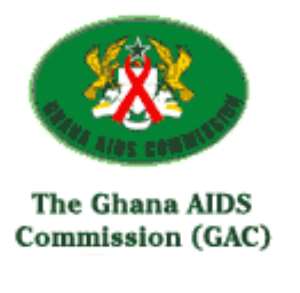Ghana’s battle against HIV and AIDS has hit a major financial roadblock, threatening the country’s ambitious goal of ending the epidemic as a public health threat by 2030. The sudden withdrawal of $78 million in United States Agency for International Development (USAID) health support earlier this year has left a gaping hole in the nation’s healthcare budget, and officials warn that promised government funding remains unreleased.
The funding crisis emerged when the Trump administration ordered a freeze on USAID projects globally in early 2025, disrupting critical health interventions across Ghana. According to Dr. Kharmercelle Prosper Akanbong, Acting Director General of the Ghana AIDS Commission, domestic seed funding for the National HIV and AIDS Fund continues to remain outstanding, creating serious sustainability concerns for the national response.
Speaking at the 14th National HIV and AIDS Partnership Forum in Accra on Wednesday, Deputy Chief of Staff Nana Oye Bampoe Addo emphasized that Ghana must urgently reposition its HIV response within a sustainable domestic financing framework. She noted that the abrupt withdrawal of external support has exposed the fragility of Ghana’s dependence on international donors, adding that ending HIV in Ghana should be funded by Ghanaians themselves.
The statistics paint a sobering picture. Over 334,000 people are currently living with HIV in Ghana, with women accounting for 68 percent of those affected. In 2024 alone, 12,614 people died from HIV or AIDS related illnesses. Yet only 72 percent of people living with HIV in the country know their status, 87 percent of those diagnosed are on treatment, and just 68 percent of those on treatment have achieved viral suppression.
These figures fall significantly short of the UNAIDS global target of 95-95-95 by 2025, which requires that 95 percent of people living with HIV know their status, 95 percent of those diagnosed receive antiretroviral therapy, and 95 percent of those on treatment achieve viral suppression. Ghana had already been facing challenges in meeting these targets even before the USAID funding withdrawal, according to Ernest Amoabeng Ortsin, President of the Ghana HIV/AIDS Network.
The funding shortfall affects far more than just HIV programs. The $78 million gap threatens critical interventions including malaria prevention, maternal and child health services, family planning, reproductive health, and nutrition programs across the country. President John Dramani Mahama has directed Finance Minister Dr. Cassiel Ato Forson to take immediate steps to bridge the estimated $156 million total shortfall created by the USAID withdrawal.
But Ghana’s commitment to filling that gap remains uncertain. While the government pledged resources in the 2025 Budget, health advocates say those funds have yet to materialize. The National HIV and AIDS Fund, established nearly a decade ago specifically to complement external funding sources, has never been activated despite repeated calls from civil society organizations.
Dr. Akanbong highlighted some progress made since the last forum, including the launch of the National HIV Response Sustainability Roadmap and Cabinet approval of the revised National HIV and Wellness Policy in July 2025. The Commission has also developed a new National HIV/TB Related Human Rights Strategic Plan. However, he cautioned that without adequate financing, these policy frameworks cannot translate into meaningful action on the ground.
The crisis has real human consequences. One HIV patient in Accra, who declined to be named, told international media outlets that approximately 150,000 individuals in Ghana depend on USAID funded antiretroviral drugs. Medical supply chain disruptions are expected throughout the country, according to health officials, raising fears about treatment interruptions that could prove fatal for those living with HIV.
Deputy Chief of Staff Addo called for a shift toward self reliance, efficiency, equity, consistency, and innovation in Ghana’s HIV response. She urged government institutions, civil society organizations, private sector actors, and traditional authorities to strengthen collaboration and reorient national priorities. The Ghana AIDS Commission has even developed a mobile short code, *9898#, where individuals can donate as little as one cedi to support HIV activities in the country.
Yet the challenge remains daunting. Ghana faces an estimated $590 million funding gap between 2023 and 2030 for its HIV response, according to the National HIV Sustainability Roadmap launched earlier this month. With external financing expected to continue declining and the government facing its own economic constraints, the path forward requires difficult choices about resource allocation and prioritization.
The Commission is calling on stakeholders to strengthen partnerships, support local production of HIV commodities, advance rights based interventions, and intensify education to eliminate stigma and discrimination. Representatives from UNESCO, the Global Fund, and various civil society groups have pledged continued support, but the scale of need far exceeds available resources.
As Ghana races against the clock to meet its 2030 target, the question is no longer whether external support will return, but whether the nation can mobilize sufficient domestic resources to sustain the fight against HIV and AIDS on its own terms.
Source: newsghana.com.gh











